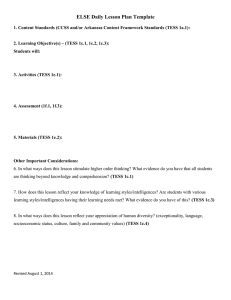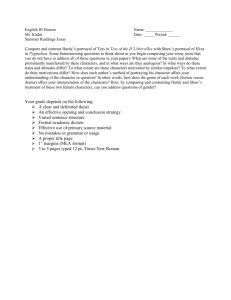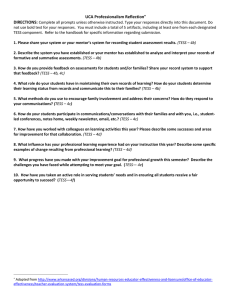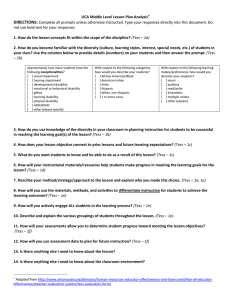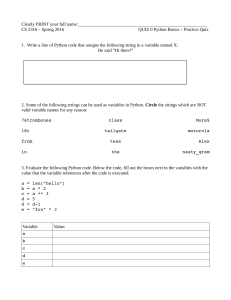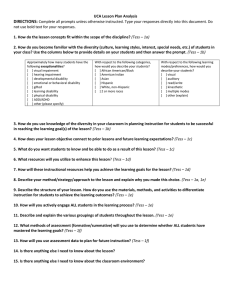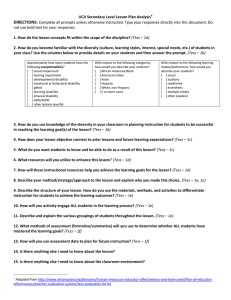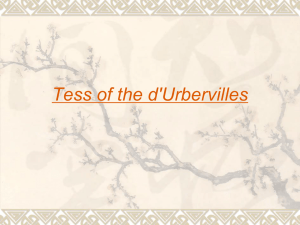Engleska knji*evnost 2
advertisement
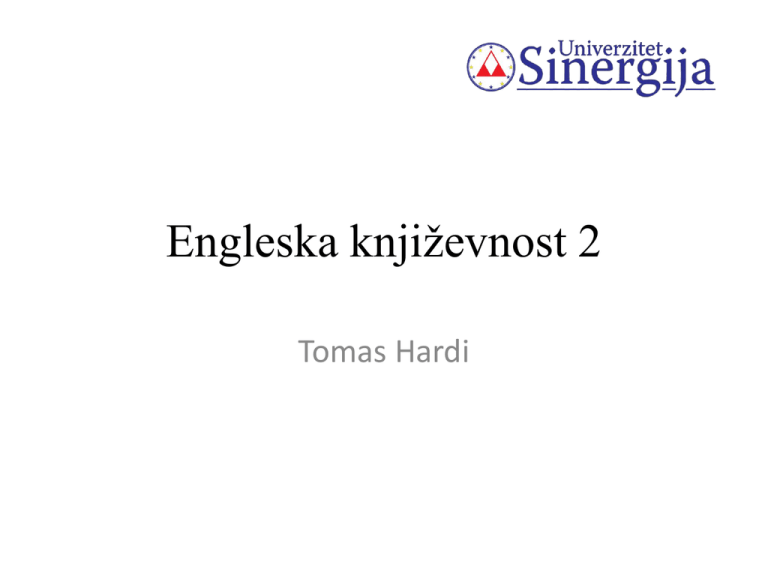
Engleska književnost 2 Tomas Hardi • Left to his reflections Abraham soon grew drowsy … Prince required but slight attention, lacking energy for superfluous movements of any sort. With no longer a companion to distract her, Tess fell more deeply into reverie than ever, her back leaning against the hives. The mute procession past her shoulders of trees and hedges became attached to fantastic scenes outside reality, and the occasional heave of the wind became the sigh of some immense sad soul, coterminous with the universe in space, and with history in time. • Then examining the mesh of events in her own life, she seemed to see the vanity of her father’s pride; the gentlemanly suitor awaiting herself in her mother’s fancy; to see him as a grimacing personage, laughing at her poverty, and her shrouded knightly ancestry. Everything grew more and more extravagant, and she no longer knew how time passed. A sudden jerk shook her in her seat, and Tess awoke from the sleep into which she, too, had fallen … • The lantern hanging at her wagon had gone out, but another was shining in her face – much brighter than her own had been. Something terrible had happened. The harness was entangled, with an object which blocked the way. • In consternation Tess jumped down and discovered the dreadful truth. The groan had proceeded from her father’s poor horse Prince. The morning mail-cart, with its two noiseless wheels, speeding along these lanes like an arrow, as it always did, had driven into her slow and unlighted equipage. The pointed shaft of the cart had entered the breast of the unhappy Prince like a sword, and from the wound his life’s blood was spouting in a stream, and falling with a hiss into the road. • In her despair Tess sprang forward and put her hand upon the hole, with the only result that she became splashed from face to skirt with the crimson drops … • “ ‘Tis because we be on a blighted star, and not a sound one, isn’t it Tess?” murmured Abraham through his tears. • It was a typical summer evening in June, the atmosphere being in such delicate equilibrium and so transmissive that inanimate objects seemed endowed with two or three senses, if not five. There was no distinction between the near and the far, and an auditor felt close to everything within the horizon. The soundlessness impressed her (Tess) as a positive entity rather than as the mere negation of noise. It was broken by the strumming of strings. • Tess had heard those notes in the attic above her head. Dim, flattened, constrained by their confinement, they had never appealed to her as now, when they wandered in the still air with a stark quality like that of nudity. To speak absolutely both instrument and execution were poor; but the relative is all, and as she listened Tess, like a fascinated bird, could not leave the spot. Far from leaving she drew up towards the performer, keeping behind the hedge that he might not guess her presence.

